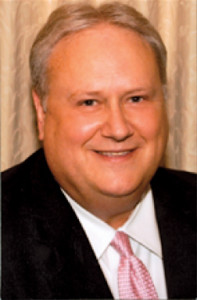
Houston’s Mental Health Crisis

You can help.
by Marene Gustin
On October 12, hundreds of folks will be walking with a purpose: to raise awareness for mental health.
The nonprofit Walk for Mental Health Awareness-Houston is actually hosting a three-day event this year, but awareness of mental health issues and funding for solutions should be a 365-day-a-year event.
Just how bad is the crisis in mental health care?
“In Houston, it’s probably better than anywhere else in the state,” says Dr. James McSwain. “But it’s still terrible. The Harris County Jail treats more mentally ill than the entire state of Texas mental health system combined.”
Think about that for a minute. And then think about the fact that the Mental Health and Mental Retardation Authority of Harris County treats fifteen thousand people per month.
Dr. McSwain, who will be speaking at the walk, knows very well the plight of the mentally ill. His eldest son, Phillip, was diagnosed with paranoid schizophrenia at the age of twenty-four. By thirty-one, he was dead from an overdose of alcohol and medication.
“Paranoid schizophrenia is a brain disorder like Alzheimer’s disease, yet it doesn’t get the same support,” says Dr. McSwain. “It’s still looked at as a personal problem. We were lucky—we had insurance, but we still went into debt and could not afford the long-term care he needed.”
Dr. McSwain explains that the problem lies in the many obstacles to treatment. Government clinics are overwhelmed and don’t have the funding they need, and private clinics that can handle long-term treatment for patients are incredibly expensive.
“The Menninger Clinic here is like the M.D. Anderson of mental health hospitals,” he says. “But for my son to stay there for six months, to receive the treatment and training he needed would have cost us $1,000 a day. And they didn’t take insurance.”
So many people suffering from mental health issues wind up falling through the cracks. They can’t get into treatment centers because they can’t navigate the intake processes, they may not know where to go for help, or they may have no support system.

Many wind up homeless. They may commit petty crimes and wind up in jail, which is where Dr. McSwain’s son wound up. “We actually tried to keep him there as long as we could,” he says sadly. “Because he was getting better care there than we could get him on the outside.”
Dr. McSwain says that most of those fighting mental illness are young and don’t have the support of grown children who can advocate for them that Alzheimer’s patients have—making it easier for politicians to ignore the problem. “Even when the Affordable Care Act kicks in,” he says, “it won’t be much better, since the insurance companies don’t want to pay for long-term treatment. They want a Band-Aid fix and then send them off.”
From a strictly economic point, it would make a lot more since for the state to fund mental health systems fully. When a bill was introduced earlier this year to fund a pilot program to transition mentally ill inmates into community facilities, Sen. Joan Huffman (R-Houston) said: “It costs around $137 per day to keep someone behind bars, as opposed to $12 per day for community mental health services. The majority of the individuals in the Harris County jail never received the services they needed—services that would have kept them out of jail in the first place.”
The jail’s medical budget is almost $50 million a year, about half of which is spent on mental health care. An estimated 25 percent of the inmates receive psychotropic medication.
“When I tried to get my son into a state facility, I was told he needed to show up across town and wait in line for several hours to meet with someone who, if he qualified, would schedule an appointment with a counselor in a couple of weeks,” sighs Dr. McSwain. “If he could do all that, he wouldn’t need help.”
This will be the doctor’s first Walk for Mental Health Awareness, but since his son’s passing in 2009, he has been a devoted advocate for the mentally ill. Besides researching and speaking out on the subject, he’s also tried to show families an easier way to navigate the system.
As principal of Lamar High School, he’s worked with the nonprofit Communities in Schools to create a one-stop-shopping center that provides referrals for families with at-risk teens.
Join the walk or the luncheon the day before at the United Way offices to learn more about the mental health problems in Harris County. Proceeds from the walk aid local nonprofits providing mental health care services.
What: 2013 Walk for Mental Health Awareness–Houston
When: October 12 at 7 a.m.
Where: Spotts Park
Cost: Entrance fee is $25 ($35 on the day of the walk)
Details: thehoustonwalk.org.
Marene Gustin is a regular contributor to OutSmart magazine.










